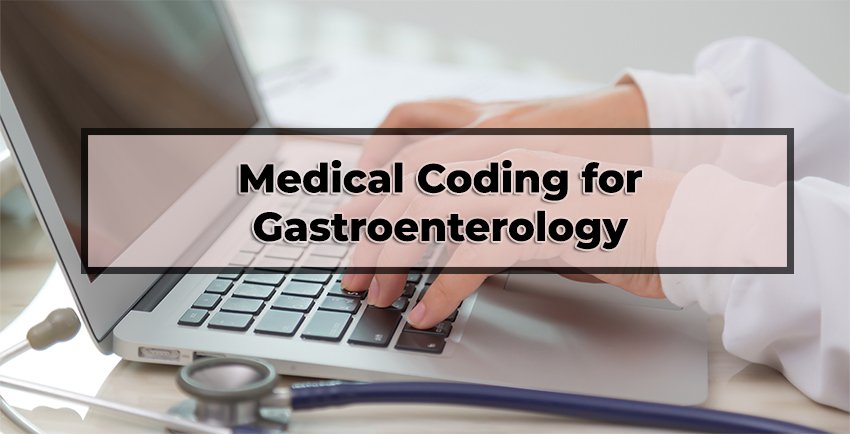Medical Coding for Gastroenterology
Gastroenterology coding covers a wide range of diagnostic and therapeutic services for the gastrointestinal (GI) system, which includes the stomach, intestines, esophagus, liver, pancreas, and other related organs. Accurate coding is essential for documenting endoscopies, colonoscopies, biopsies, and other GI procedures, ensuring proper billing and reimbursement. Gastroenterology coders need to be well-versed in CPT (Current Procedural Terminology) codes for procedures, ICD-10-CM codes for diagnoses, and HCPCS codes for any specific supplies or medications administered during GI procedures.

Key Components of Gastroenterology Coding
- Diagnostic and Screening Procedures: One of the most common types of GI procedures is the colonoscopy, used for diagnostic, therapeutic, or screening purposes. CPT code 45378 is used for a diagnostic colonoscopy, while screening colonoscopies are represented by different codes, such as 45380 when a biopsy is taken. Coders must distinguish between screening and diagnostic procedures, as it affects the coding and potential payer coverage.
- Upper Gastrointestinal Endoscopies and Related Procedures: An esophagogastroduodenoscopy (EGD), also known as an upper GI endoscopy, is a common diagnostic procedure used to examine the esophagus, stomach, and duodenum. For instance, 43235 represents a diagnostic EGD, while 43239 is used for an EGD with biopsy. Coders must identify any therapeutic procedures, such as dilation or stent placement, performed alongside diagnostic assessments and use the appropriate codes.
- Hepatobiliary and Pancreatic Procedures: Gastroenterologists also manage liver, gallbladder, and pancreatic disorders. Endoscopic Retrograde Cholangiopancreatography (ERCP) is a specialized procedure for diagnosing and treating conditions affecting the bile ducts and pancreas. Codes like 43260 for a diagnostic ERCP and 43264 for ERCP with stent placement are used to accurately reflect the complexity of the procedure and any interventions performed.
Special Considerations in Gastroenterology Coding
- Use of Time-Based and Complexity-Based Codes: Certain gastroenterological procedures, such as endoscopic ablations or prolonged therapeutic interventions, are time-based. Coders must document the length and complexity of each procedure accurately. For instance, prolonged procedures require additional codes to capture the extended time and complexity, ensuring that the correct units of time are billed.
- Coding for Multiple Procedures and Bundling Rules: Many GI procedures involve performing multiple interventions in a single session, such as a colonoscopy with both polyp removal and biopsy. Coders must know when to bundle codes and when to code separately for distinct procedures. Modifier -51 is often used for multiple procedures performed on the same day, while modifier -59 indicates a distinct procedure that should not be bundled.
- ICD-10-CM Coding for GI Diagnoses: Diagnoses in gastroenterology can range from inflammatory conditions like Crohn's disease and ulcerative colitis to functional disorders like irritable bowel syndrome (IBS). Coders must select the appropriate ICD-10-CM codes to accurately reflect the GI condition being treated, such as K50.00 for Crohn’s disease of the small intestine without complications, or K21.0 for gastroesophageal reflux disease (GERD) with esophagitis.
Documentation and Billing Essentials in Gastroenterology
- Detailed Reporting of Procedures and Findings: Physicians must provide clear, detailed notes on the type of procedure performed, any findings (e.g., polyps, lesions), therapeutic interventions, and complications encountered. Coders rely on this documentation to choose the appropriate CPT codes and ensure that the medical record supports the services billed.
- Capture of Ancillary Services and Supplies: In gastroenterology, many procedures involve the use of specific supplies, such as endoscopic clips, stents, or injection agents. Coders must use the appropriate HCPCS codes to capture the use of these supplies, especially when they are not included in the primary procedure code.
Challenges in Gastroenterology Coding
- Managing Screening vs. Diagnostic Services: A common challenge in GI coding is correctly differentiating between a screening procedure (e.g., routine colonoscopy for cancer screening) and a diagnostic procedure (e.g., colonoscopy for GI bleeding). The transition from a screening to a diagnostic service during the same session (such as discovering and removing a polyp) must be properly documented and coded, which may involve using additional codes or modifiers to reflect the change in service type.
- Adapting to Payer Policies and Prior Authorization Requirements: Coverage policies for gastroenterology services vary by payer, with certain procedures requiring pre-authorization, specific criteria for medical necessity, and limits on repeat procedures. Coders must stay informed about payer policies, ensure compliance, and provide all necessary documentation for coverage.
Best Practices for Gastroenterology Coding
- Stay Updated on Coding Changes and Guidelines: Gastroenterology coding is subject to frequent updates, as new procedures and guidelines are introduced. Coders should stay current on CPT, ICD-10-CM, and HCPCS coding changes and payer policy updates to ensure compliance and accurate billing.
- Proper Use of Modifiers: When coding for multiple GI procedures, the correct use of modifiers is essential to communicate the context and specifics of each service. For example, modifier -33 indicates a preventive service, while modifier -22 is used to indicate an unusually prolonged or complex procedure. Coders must apply modifiers accurately to ensure that the billing reflects the services provided.
Gastroenterology coding is a specialized field that requires an in-depth understanding of the GI system, diagnostic and therapeutic procedures, and payer-specific guidelines. Accurate coding for colonoscopies, endoscopies, hepatobiliary procedures, and various therapeutic interventions is crucial for proper billing, comprehensive patient care documentation, and adherence to insurance policies. Coders play a vital role in supporting gastroenterologists by ensuring that every service is accurately represented and compliant with the latest coding standards and payer requirements.

